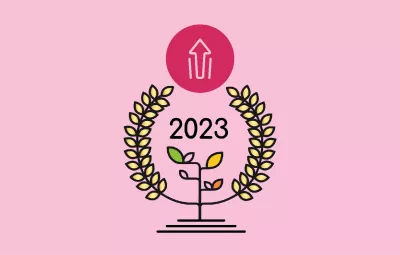General information
RDP Priority
- P1. Knowledge transfer and innovation
- P2. Competitiveness
RDP Focus Area
- 1A: Innovation & cooperation
RDP Measure
- M16: Cooperation
Beneficiary type
- Small-Micro Enterprise
Summary
The Kodas brewery in Southern Estonia has developed a new product line by upcycling pomace, a by-product of juice pressing. Thanks to laboratory testing, scientific and market research, the project succeeded in developing a new product, Fibes, a gut-friendly fruit puree. Fibes is produced in a modern factory making high-quality and innovative food and beverage products and providing good jobs in a rural area. This project is an example of the application of the principles of the circular economy in day-to-day operations, resulting in products with a significant health impact and global marketing potential. The brand recognition of Kodas as a manufacturer of products that can generate changes in people's awareness and consumption habits has grown significantly.
Results
- Increase in resource efficiency in production of approximately 15%.
- Reduced environmental impact through a circular economy approach.
- Creation of new jobs with higher salaries.
- Simultaneous production of both beverages and food.
- Automation and digitalisation of the processes.
- Upcycling apple pomace (a by-product of apple juice production) into a new product - a fibre-rich, gut-friendly puree.
- A new scalable technological process.
- A leading example of innovation and the circular economy for other companies both nationally and internationally.
- Widespread publicity.
Resources
Documents
Links
Context
Kodas cider house is an established brewery in southern Estonia. Most of the inputs (unprocessed horticultural products) for the production come from nearby apple orchards and neighbouring farms. The by-product of the juice pressing was commonly used as bio-waste or for generating biogas. However, the results of laboratory tests showed that valuable biochemical compounds (vitamins, minerals, sugars, etc.) are proportionally divided between the juice and the pulp, except for fibres. One of the most valuable bio-compounds – dietary fibres – remain mainly in the pulp, the dry remnant product of the juice pressing known as pomace.
Objectives
The project aimed to increase resource efficiency in the production process and thereby create a viable commercial product out of a former waste stream. The project aimed to provide employment, particularly better paid jobs in a rural region, by producing products with higher added value and global export potential.
Activities
The project researched and created a process for upcycling the pomace. The project included a range of research and pilot activities, including product idea brainstorming, development at lab scale, testing at pilot scale, testing at industrial production scale, chemical, microbiological and sensory analyses, consumer studies and a dietary intervention study.
Project activities included applied research projects, construction of a modern factory producing high-quality and innovative food and beverage products, investment in an innovative food production line alongside the beverage production, applying the principles of the circular economy in day-to-day operations and establishing a restaurant/factory outlet to keep the delivery chain to the end user as short as possible.
The project is a perfect example of a long-term partnership between private enterprise and a research institution which resulted in numerous networking opportunities. There have been several awareness-building events, publications and presentations in scientific conferences and the project has attracted media coverage. Applied research and product development also includes health impact surveys of this new and innovative product range.
Main results
Despite the challenges of the pandemic, a new production line was developed along with delicious recipes for the final product: Fibes, a gut-friendly fruit puree.
The project achieved higher resource efficiency in production (an increase of approximately 15%) and reduced environmental impact through a circular economy approach. Approximately 40% of the processed biomass (apples and berries) used to produce Fibes is the by-product of the juice pressing at the brewery.
The project led to the creation of four new jobs; including high-quality employment (production engineers were hired); gained significant added value per employee; and established next-generation leadership potential for the business. Additionally, the lead production engineer is a Ukrainian refugee. Thanks to the project’s success, he has a long-term position and receives a competitive level of renumeration.
Innovation is evident throughout the whole undertaking – in the simultaneous production technologies of both beverages and food, the automation and digitalisation of the processes, and the final product itself: the fibre-rich, gut-friendly puree as a result of upcycling of the apple pomace during apple juice production.
The new technological process is scalable. There is potential to transfer knowledge and competences from the project.
Two important stakeholders have used the project as a case study and good example of innovation and the circular economy. The Estonian University of Life Sciences has organised awareness-building events and seminars for other companies and consultants on the project premises. A representative of the Polish-Estonian Chamber of Commerce has explored the opportunity of transferring the experience of this innovative circular economy development to the main horticultural regions of Poland.
Key lessons
When planning a project with a strong innovation component, it is worth taking into account that achieving results may take up to 30% longer than planned and that the actual budget may be 30% higher. It is important to accept that negative outcomes are also part of the learning process, a necessary element of innovative projects.
It is important to have a clear understanding of the challenge addressed by the project and to demonstrate persistence and flexibility in the course of the implementation of the project.
The most interesting parts of this project were the experiments, the dietary intervention studies and how much publicity it has generated. Kodas has become a well-known brand in Estonia.
Contacts
Siidrikoda, Valgjärve, Kanepi parish, Põlvamaa county, Estonia
Sulev Nõmmann


